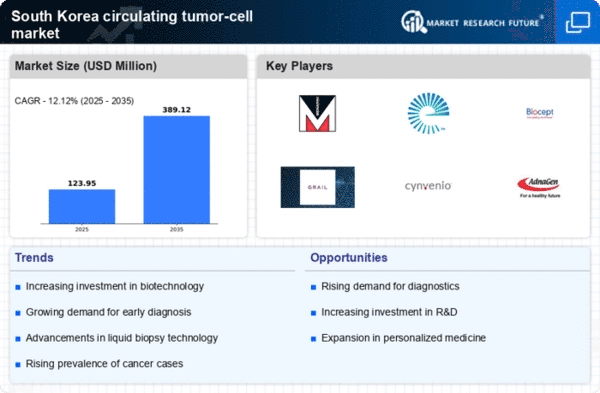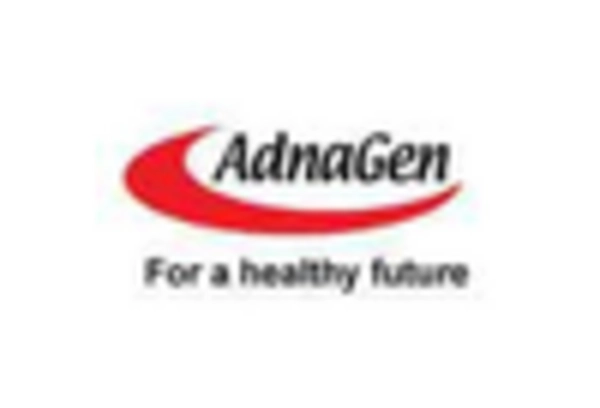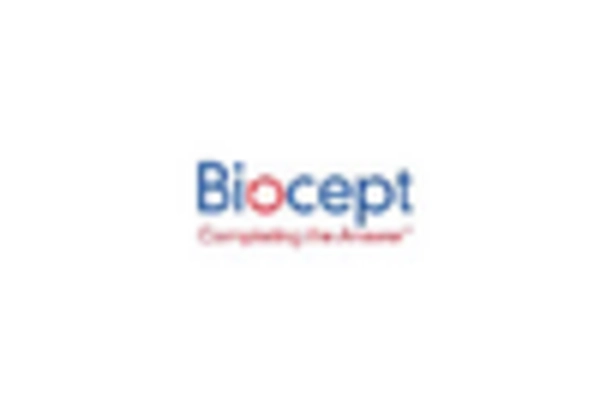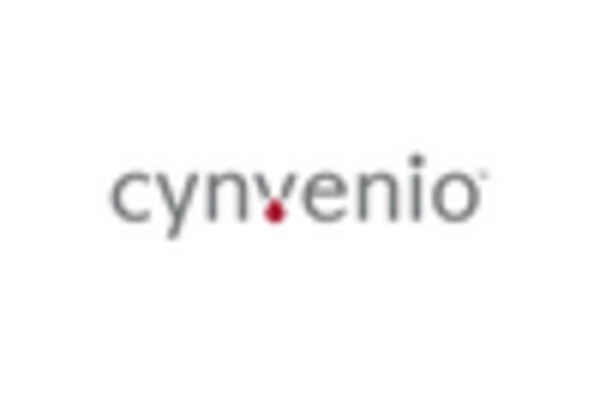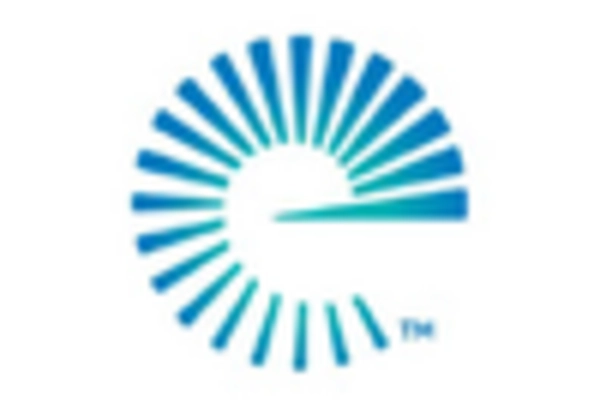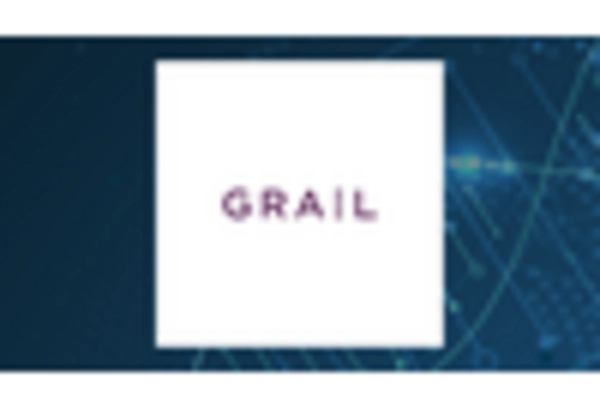Increasing Cancer Incidence
The rising incidence of cancer in South Korea is a critical driver for the circulating tumor-cell market. According to the Korean National Cancer Center, cancer cases have been steadily increasing, with an estimated 250,000 new cases reported annually. This surge in cancer diagnoses necessitates advanced diagnostic tools, including those that utilize circulating tumor cells. As healthcare providers seek to improve patient outcomes, the demand for innovative technologies in cancer detection and monitoring is likely to grow. The circulating tumor-cell market is positioned to benefit from this trend, as these technologies offer non-invasive methods for early detection and treatment monitoring, potentially leading to better survival rates. Furthermore, the increasing awareness of cancer screening among the population may further propel the market, as patients and healthcare professionals alike seek more effective diagnostic solutions.
Growing Awareness of Early Detection
The increasing awareness of the importance of early cancer detection is a significant driver for the circulating tumor-cell market. Educational campaigns and initiatives by healthcare organizations in South Korea have led to a heightened understanding of cancer risks and the benefits of early diagnosis. As a result, patients are more inclined to seek out advanced diagnostic options, including those that utilize circulating tumor cells. This shift in patient behavior is likely to drive demand for innovative diagnostic solutions, as individuals become proactive in managing their health. The circulating tumor-cell market stands to gain from this trend, as these technologies offer a non-invasive approach to monitoring cancer progression and treatment response. Furthermore, the potential for improved patient outcomes through early detection may encourage healthcare providers to adopt these technologies more widely, further propelling market growth.
Advancements in Research and Development
Ongoing advancements in research and development within the field of oncology are significantly influencing the circulating tumor-cell market. South Korea has established itself as a hub for biomedical research, with numerous institutions focusing on cancer research. The government has invested heavily in R&D, with funding exceeding $1 billion annually for cancer-related projects. This investment fosters innovation in diagnostic technologies, including those that analyze circulating tumor cells. As researchers develop more sophisticated methods for isolating and analyzing these cells, the market is likely to see an influx of new products and services. Moreover, collaborations between academic institutions and private companies are expected to enhance the development of novel diagnostic tools, thereby expanding the market's potential. The continuous evolution of research in this area suggests a promising future for the circulating tumor-cell market.
Regulatory Support for Innovative Diagnostics
Regulatory support for innovative diagnostic technologies is emerging as a key driver for the circulating tumor-cell market. In South Korea, the Ministry of Food and Drug Safety has streamlined the approval process for new diagnostic tools, facilitating quicker access to the market. This regulatory environment encourages companies to invest in the development of novel circulating tumor-cell technologies, as they can bring their products to market more efficiently. Additionally, the government has implemented policies that promote the adoption of advanced diagnostic methods in clinical practice. As a result, healthcare providers are more likely to integrate circulating tumor-cell technologies into their diagnostic protocols, enhancing patient care. The supportive regulatory landscape is expected to foster innovation and competition within the market, ultimately benefiting patients through improved diagnostic options.
Integration of Artificial Intelligence in Diagnostics
The integration of artificial intelligence (AI) in diagnostic processes is poised to transform the circulating tumor-cell market. In South Korea, AI technologies are increasingly being utilized to enhance the accuracy and efficiency of cancer diagnostics. By leveraging machine learning algorithms, healthcare providers can analyze complex data sets derived from circulating tumor cells, leading to more precise diagnoses and treatment plans. This technological advancement not only improves patient outcomes but also streamlines the diagnostic workflow, potentially reducing costs associated with cancer care. As AI continues to evolve, its application in the circulating tumor-cell market is likely to expand, offering new opportunities for innovation. The combination of AI and circulating tumor-cell technologies may lead to breakthroughs in personalized medicine, further driving market growth and enhancing the overall landscape of cancer diagnostics.


